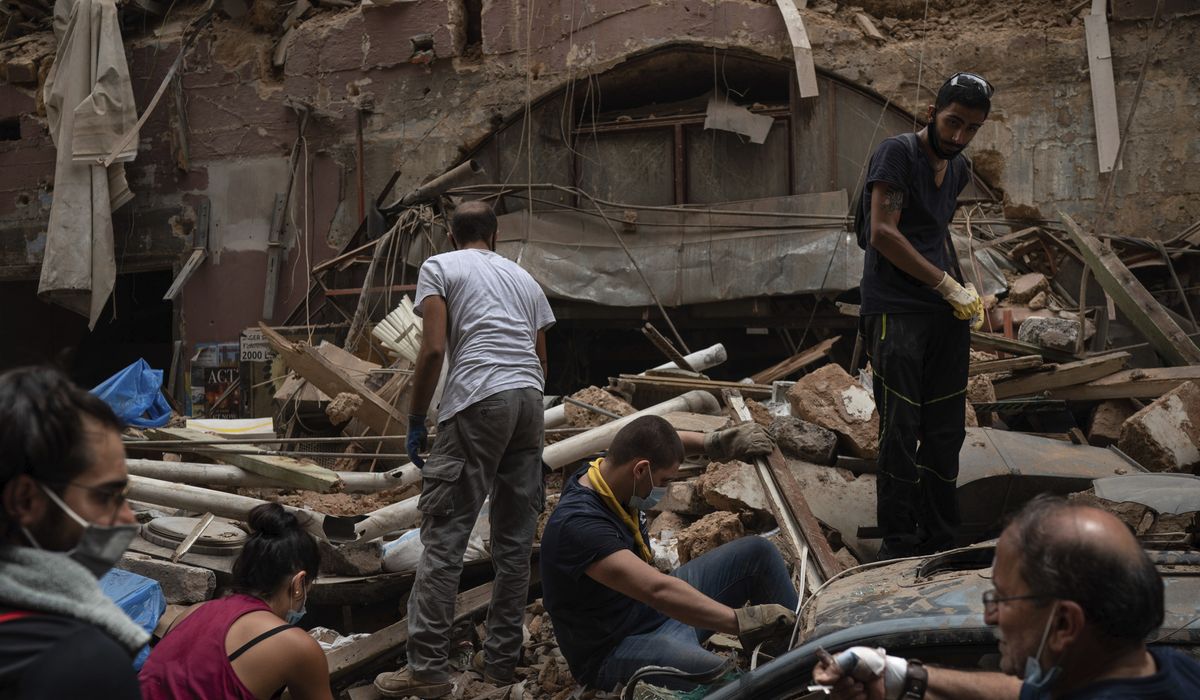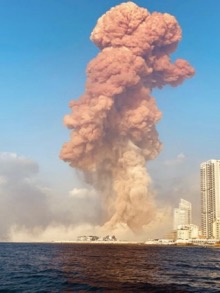How is the Lebanese harbour organised? It is controlled by a kind of local mafia composed of high ranking officers, customs directors, administrators and security officials. Each person in charge has been appointed by a political leader offering his men immunity and protection. The harbour produces immense amounts of money and bribes are the daily bread of all those who run this “show”. In the face of such corruption, it is now clear that scientific expertise about what is happening to store AN and the conditions in which 2,750 tons of it are stored counted for little. Actually, many officers in this Port have no competence for the jobs they do and are appointed, as we have seen, by favouritism and through political connections. This is indeed the case for the Director of Customs and the Army intelligence, General S., responsible for harbour movements and contents. So, given all that, when a problem or a disaster occurs, as it did on Tuesday, it will obviously be very difficult to find those really responsible. So how did the conditions for this AN explosion arise?
On the 4th of August, at 15:00 local time, a blacksmith was asked to close the holes in the warehouse to prevent potential smuggling of the content.
The blacksmith was not informed about the hazardous content of the warehouse, nor he was told to take the necessary precautions to prevent the spread of metal particles that produce fragments and can trigger a fire. He was working at a distance no more than a few centimetres from the AN bags that were lying on the floor, from which a clear substance was leaking. Once the job was done, between 16:30 and 17:00, smoke was seen coming from the warehouse.
Firemen were called to deal with the potential fire. At 18:08 the first explosion was heard, followed by the second one over a minute later. After the first explosion, a fire ignited inside the warehouse. The fire generated more heat, enough for the entire stock of AN to blow up and create a vacuum (negative pressure). The pressure of the explosion caused the many casualties and devastating destruction in the city.
Who called the blacksmith and allocated the budget for his work? Was he informed of the hazard of welding next to Ammonium Nitrate? Why were the 2,750 tons of AN left for more than six years in non-regulation storage for no justifiable reason whatsoever?
The question has to be asked: “who benefits from the explosion?” The affected area belongs mainly to people who are not generally friendly to Hezbollah. Therefore,
it would not have been in Israel’s interest nor in that of the US to bomb and cause so much damage to the properties and businesses of friendly parties. Destroying this part of Beirut in order to impose a “new Middle East” or a “new Lebanon” makes no sense either, because the anti-Hezbollah population is currently weaker than ever and is not in a position to confront Hezbollah. France and the US are in no better position to influence the population.
Speculation about Hezbollah storing weapons at warehouse 12 is ridiculous and unfounded- because the place was under constant surveillance by cameras controlled by the security forces themselves.
Hezbollah would certainly not store weapons in an area both unfriendly and not under its own control.






